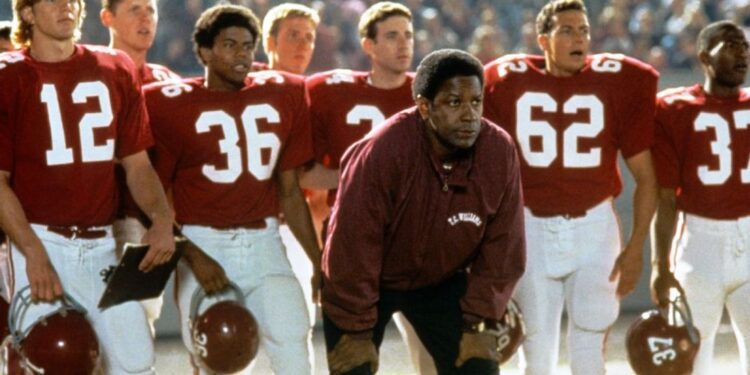One of my most cherished films is Remember the Titans. It centers around the iconic 1971 high school team that clinched the Virginia state football title and ascended to the No. 2 ranking among high school teams nationally. Yet, the reasons behind the making of this Hollywood film and the enduring discussions it sparked in barbershops extend beyond just those victories.
The team members were students at a newly integrated high school in Alexandria, Virginia—a place rife with tension. Throughout that season, they overcame racial barriers and guided their supporters to do the same.
“In a time when the city was on the verge of chaos, the boys took a stand and transformed the mindset of their peers and community,” Coach Herman Boone shared in an interview featured on the movie’s DVD.
They cultivated a spirit of teamwork; each individual learning to set aside biases, suspicions, pride, and fear to be part of a larger unity.
The transition from ‘me’ to ‘we’ (or in the case of the Titans, transforming us versus them into simply us) is not an instinctive shift for everyone. It certainly wasn’t for me. That’s why in today’s discussion, we are going to explore the traits of a strong team player and delve into ways to embrace a collaborative mindset.
Communicate Openly
While Coach Boone may have instructed on playing techniques, the more essential skill he instilled in his players was effective communication. He made sure the young men traveled, roomed, and practiced together. They met this with resistance—except for one white player who broke through racial barriers and set an example for everyone else. Although their victories on the field were impactful, it was the conversations in the locker room that truly shattered the division, Boone later remarked.
Effective communication involves more than speaking (and certainly more than just texting). To enhance your interactions with others…
- Be Honest. Keeping hidden motives, passing messages through intermediaries, sugarcoating negative news, avoiding the issue, and airing disputes on social media are guaranteed methods to undermine group dynamics.
- Be Prompt. If something is bothering you, address it within 24 hours so that a temporary annoyance doesn’t evolve into a long-standing grievance.
- Be Open. While discretion is important when necessary, strive to share as much relevant information with your team as you can. Transparent communication fosters trust, which in turn enhances ownership and encourages participation.
Adapt to Change
Innovative music producer Quincy Jones once faced backlash for being labeled a sellout. He was a prominent figure in the jazz scene, mingling with its most celebrated musicians. Yet in the 1980s, he ventured into pop music alongside rising talent Michael Jackson, much to the dismay of jazz purists.
Jones brushed aside the criticism. “At ages 12 to 13, we played a wide array of music—everything from strip tunes to rhythm and blues,” he recounted in an interview with Context magazine. “We performed pop, [polkas], and Sousa as well…. We played in every club—black, white, tennis. So I’ve always had a diverse repertoire to draw from.”
Adaptability is perhaps one of the most valuable traits in a team member. What organization doesn’t thrive when someone can navigate financial fluctuations, step in for colleagues, adjust to evolving processes, or pivot strategies seamlessly? These adaptable team members display a nimbleness that motivates others, instilling a can-do attitude throughout the organization.
You can enhance your flexibility in thinking if you…
- Continue Learning. For many years, I carried a notecard and noted down new insights as I absorbed them. I developed a habit of seeking new knowledge and skills.
- Expand Your Horizons. How often have you encountered a colleague complaining, “That’s not my responsibility”? Don’t fall into that trap! Instead, take initiative to understand the roles of others, especially those above you. You never know when you might need to pitch in during a crisis.
- Innovate. Seek creative solutions when facing challenges. “It’s been said that a person’s age can be gauged by the amount of discomfort they feel when confronted with a new idea,” said Jones. “Those who meet new concepts with curiosity rather than fear are the truly innovative individuals. ‘Let’s give it a shot,’ they say. ‘Let’s explore this, even if it doesn’t pan out.’”
Cheer for Others
Metaphorically, of course. However, consider the exuberance of cheerleaders and the vibrancy they spread across the field and bleachers.
I think of companies like Harley-Davidson, which went from dominating 80% of its market to nearly facing bankruptcy in the early 1980s. Or General Motors struggling during the 2000s, or Starbucks losing its identity with rapid, unsustainable growth.
In all these instances, the enthusiasm of the CEO and team members pulled those businesses from the edge of collapse, propelling them into the successful entities they are today. You don’t need to adopt an overly optimistic persona to infuse energy into your workplace. But you can enhance your enthusiasm by…
- Exhibiting Urgency. Assign deadlines for each stage of a project, particularly for tasks you’ve been procrastinating on.
- Taking Initiative. When someone requests assistance, fulfill it and then exceed what was asked.
- Aiming for Excellence. Nothing generates enthusiasm quite like the success that follows completing a task effectively. Let that momentum propel you into your next endeavor.
Starbucks’ CEO Howard Schultz perhaps articulated it best: “When you’re surrounded by people who share a passionate commitment to a common objective, anything is possible.”
* * *
These traits represent just a glimpse of the valuable qualities that positive team members contribute to their organizations.
I will leave you with one last exercise: Reflect on the individuals within your environment. Consider everyone from the parking attendant to the CEO. Identify those exhibiting exemplary team traits. Observe their behaviors. How do they manifest their attitudes in action? How do they motivate others to follow in their footsteps? Teamwork doesn’t come naturally to everyone, but remember those Titans and understand that attitudes have the power to transform.


